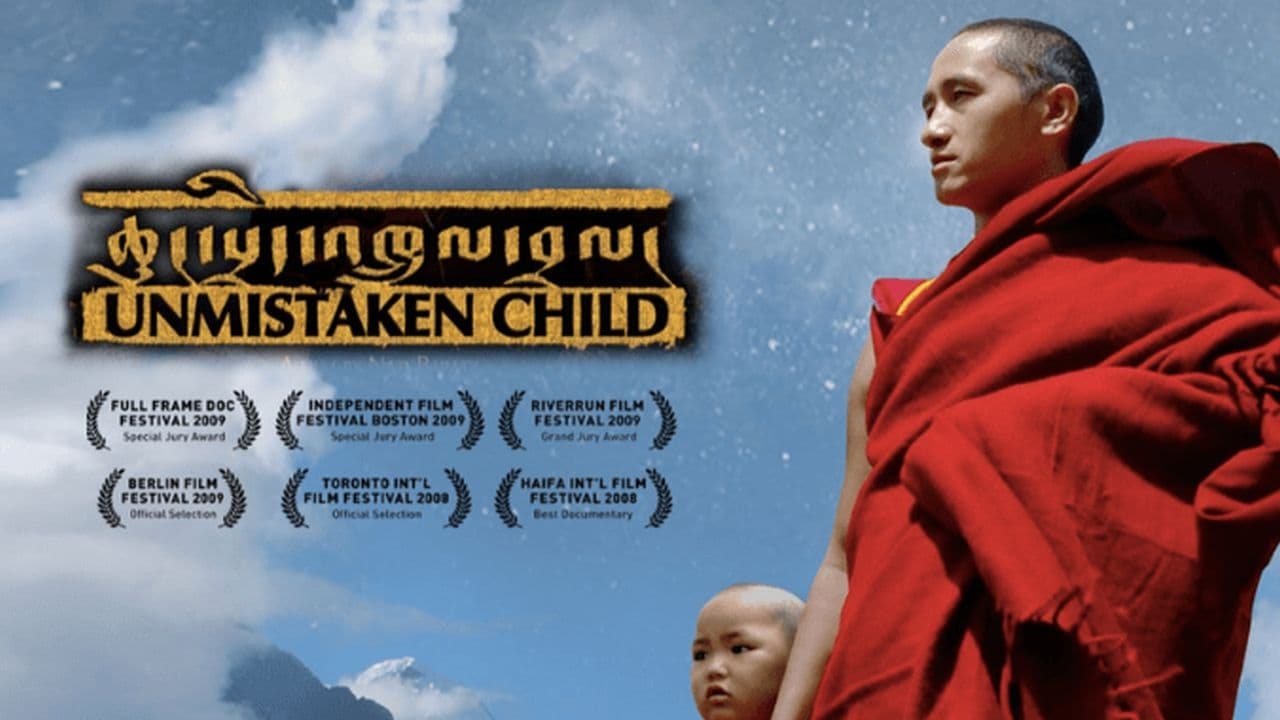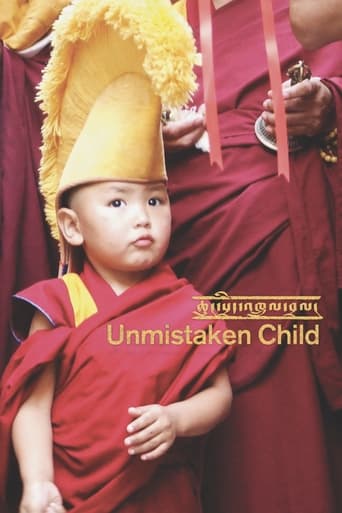



Boring, long, and too preachy.
It's an amazing and heartbreaking story.
The plot isn't so bad, but the pace of storytelling is too slow which makes people bored. Certain moments are so obvious and unnecessary for the main plot. I would've fast-forwarded those moments if it was an online streaming. The ending looks like implying a sequel, not sure if this movie will get one
View MoreGreat example of an old-fashioned, pure-at-heart escapist event movie that doesn't pretend to be anything that it's not and has boat loads of fun being its own ludicrous self.
View MoreComplex. moving, thought provoking and beautifully shot, with a great score.I struggled a bit philosophically at first while watching, since I've been trained in a more western tradition of Buddhism, and don't take the concept of reincarnation literally. And I had an even harder time seeing a tiny child taken from it's family with no say as to his fate. But then I realized that the documentary – which is told without narration – isn't taking sides on whether reincarnation is real, whether this child actually is the reincarnation of the former llama (there are some moments that seem to actively raise question, where it looks like the boy may being guided to give the right answers). It's simply displaying a way of life and a tradition that has gone on for hundreds of years. One that includes the cruelty of separating a child and his family, but that has also led to such important figures as the current Dali Llama, who has done so much for world peace. And, in turn that leads to bigger, important questions about how we raise children. If we never forced children directions against their will at times, we might never have some of our greatest figures in religion, leadership, arts, etc. But in doing so, do we also in some way harm the soul of that child? Where is the line between freedom and tradition? These are important questions, and the film raises them with skill and grace, without attempting to force an easy answer.It's also the very emotional journey of the young monk charged with the difficult and uncertain task of finding the reincarnation of the man he loved and served for many years. Whether your beliefs, you can't help but care for this charismatic and vulnerable monk on his physically, emotionally and spiritually challenging journey.
View MoreUnmistaken Child is a beautiful film! Traveling along with Tenzin Zopa through the hills and fields is very enjoyable. It felt like I was actually there, experiencing the journey with him. I thought it would be impossible for a single man to find THE one little boy that could not be mistaken for anyone other than the reincarnate of Geshe Lama Konchog. However, while watching the film, I began to believe that Tenzin was actually capable of the task that he was assigned. He knew what he needed to do to accomplish the task, and he had loads of patience and determination to find the one little boy. Learning the process of searching for the reincarnate of the deceased lama is very interesting and beautiful. I think everybody could find something interesting about this film because it's an insightful look into the world of reincarnation and Buddhism.
View MoreIn a year when films that glorify sadistic revenge fantasies and psychopathic violence against women are celebrated, Israeli director Nati Baratz's documentary Unmistaken Child is a tribute to a director and a young Buddhist monk who are willing to share with the world a journey of love. The film concerns twenty-eight year old Tenzin Zopa, a Buddhist monk who left his family at the age of seven to become a disciple of a Tibetan Buddhist master, who then takes on the responsibility of searching for his master's reincarnation when he dies at the age of 84 in 2001. Though Tenzin is devastated when he loses his teacher, Lama Konchog, and feels inadequate to the task ahead, he agrees to search for his master's reincarnation out of a sense of duty to pass on his master's wisdom to the world.After a senior monk with an astrological gift determines that the child was born in the Tsum Valley of Nepal, and that the boy's father's name begins with "A, Tenzin sets out on foot on a four-year journey to seek the "unmistaken child", not knowing if he will be successful. Accompanied by Baratz and his camera and with permission from the Lama Zopa Rinpoche, he visits villages in the same area in which he grew up, inquiring as to whether families with a child of age one to one and a half years lives in the village. He interviews children, parents, and grandparents, asking many questions and testing each child to try to find out if the young child is unusually attracted to the master's rosary beads.When he travels to Chekampor Village which was his place of birth, he meets relatives including an aunt who tells him that there may be such a child in the next village whose father's name, is Ahpe. En route to meet this boy, Tenzin comes across Genshe-La's retreat where he first met his spiritual teacher at the age of seven. Saddened by the dilapidated condition of the retreat, Tenzin sheds tears but his spirits are buoyed by the sight of the child who waters the same apple tree daily that was planted many years ago by Konchong and clings to the rosary beads. In a moment that is pure magic, the little boy is brought to a monastery where he is able to identify personal items such as a hand bell and drum that were used by Kongchong.The most intriguing part of the film, however, is the unfolding of the relationship between Tenzin Zopa culminating with their meeting with His Holiness the Dalai Lama. The Dalai Lama is the only one who can determine whether or not the boy will be accepted as the reincarnation of Lama Konchong. This test is just preliminary however to the crucial meeting between the boy and his parents and it is a test that both Tenzin and the family face with bravery and good humor. Shot in the villages and countryside of Nepal, Unmistaken Child is a film of unexcelled beauty, both physical and spiritual that left me with a glow that lasted for days.
View MoreBy far, this doc is as standard as you get. And it has no gimmicks. Everything is chronological. No heavy voice over narration. It lets the story tell itself - the most traditional kind.The camera follows the journey of a Tibetan monk in search for the reincarnation of his master. The pressure is overwhelming to say the least. He is given some clues and it is interesting to see the very argumentative confirmation process. But the subject and journey is interesting. You see the crucial points coming, you anticipate them yet it is more than what you can imagine - simply because it is not dramatic - because most of the time, the people involved holding down some of their feelings.This remarkable film seems to have followed a quest from 2001 to 2005 or 2006. and only ending editing 2 weeks ago. To have traveled so far for so long but presented a story with so much dignity and humility is an achievement in itself - to have a soul almost.*spolier* one key passage (the director alluded to this as well) is the taking away of the child. and what the parent, particularly the father, commented on.This reminds me of Weeping Camel' doc film I saw a few years back. It seems to have that same soul. The film does not call attention to itself but to and respect of its subjects.Substance is not about quantity; and depth is not always complex - but maybe about a journey or a certain truth.During Q&A the director also mention it took a long time for the Monks to trust what he is doing.
View More